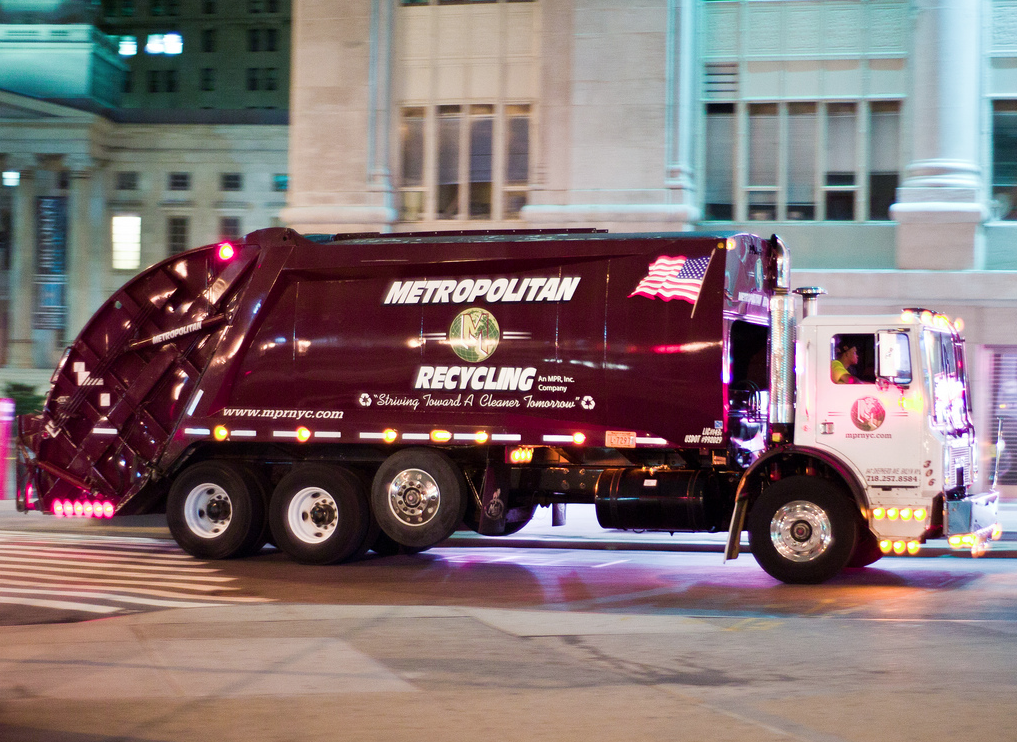Advocates want to rein in the deadly private carting industry with a slate of reforms designed to protect workers and make roadways safer — a program that goes much further than the de Blasio administration's current proposal.
The city must assign just one private hauler to each new exclusive commercial waste zone rather than multiple competing companies for business as the mayor has proposed, advocates said Tuesday, as they unveiled a reform plan that seeks to end the dangerous free-for-all of as many as 50 private carting companies picking up trash from just one neighborhood.
Council member Antonio Reynoso joined the advocates to demand a safer industry whose drivers have killed at least 20 people since 2016.
“We are talking about saving lives," said Reynoso, the chairman of the Council's sanitation committee, at City Hall.
Last year, the Department of Sanitation put forward a Commercial Waste Zone framework following years of advocacy to fix the deadly industry.
The city plan would assign three to five haulers to each of the new zones — but activists say that does not go far enough in reducing the possibility of crashes on the road or preventing tired, overworked employees from getting behind the wheel.
"I felt like I was killing myself for a paycheck. I worked in the cold, in the rain, with buckets of water in my shoes, and in the heat," said John Rojas, who used to work for Sanitation Salvage and was on hand at the presser. "By the time I went to sleep it was 1 p.m., and I had to wake up again at 5 p.m. or earlier just to have a little bit of time for myself and not go crazy. I did this six days a week. I had never had to work this much in my life."
The demands for exclusive waste zones with just one hauler per zone is part of a larger seven-point plan outlined in the advocates' new report, “Just Jobs for Waste Workers," released on Tuesday.
The seven points, include:
- Ensuring that regulators have the tools needed to enforce good practices within the industry, following legislation Council passed earlier this year to crack down on so-called "sham unions" within the business.
- The city must only award contracts to employers who have a good track record of offering their employees minimum wage, overtime pay, limitations on hours of service, paid sick and family leave, and safety training programs; and on the flip side, penalize companies that violate employees' rights to choose a union — a scare tactic documented by ProPublica.
- Officials must incentivize companies to invest in the health and safety of their workers by using low or zero emissions trucks — a practice that would benefit every community across the city
- The city must prioritize hiring and job training for communities that are often excluded from good jobs, especially formerly incarcerated individuals, immigrants, and workers from low-income communities of color that have long been forced to deal with a disproportionate share of garbage truck traffic.
- Support entrepreneurship and diversity in the recycling and diversion sector through minority and women-owned business enterprises subcontracting requirements and financial support to community-based sustainability efforts.
A spokeswoman for the Department of Sanitation said the city's commercial waste zone plan addresses some of the demands made in the report, although it does not go so far as to support just one hauler per zone.
"The plan, created through extensive stakeholder engagement, will bring comprehensive reform to the commercial waste industry and provide businesses, haulers, and residents with a safe and efficient system," said Dina Montes. "It will also improve working conditions, safety and labor standards for employees of private waste haulers."
Legislation for reforming the private carting industry is expected this spring, according to Reynoso’s office.






